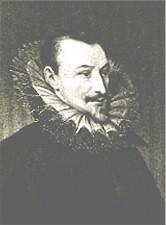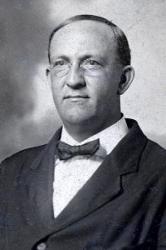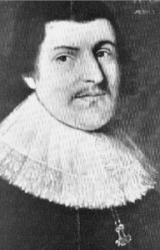
1552 - 1599 Person Name: Edmund Spenser, 1552-1599 Scripture: Matthew 27:52 Author of "Most glorious Lord of life" in Complete Anglican Hymns Old and New Spenser, Edmund (born 1552; died 1599), has a right to his place in this work extrinsically and intrinsically. Extrinsically his odes, entitled by himself Fowre Hymnes, give us a connecting link with Chaucer; and intrinsically they are of "the brave translunary things" that ought long since to have introduced much in them to the Church's Hymnology. Spenser in the outset acknowledged Chaucer for his "dere maister;" and throughout there are echoes and re-echoes of him. Specifically in relation to the Foure Hymn, the Compleynt of Pite must have been carried by the youthful Spenser to Hurstwood and the Pendle district, or was found in one or other of the contemporary oultured Spenser households there. The Compleyn is of "Love," as is Spenser's first of the immortal four "in honour of Love." Like Chaucer's, the metre of the new Hymnes is rhyme-royal; and the meditative reader of the elder and later poets will catch notes and images common to both. Nor is it mere verbal resemblances that we come upon. The thought and emotion flow in the same channels…
Turning to the Hymnes themselves, the student-reader will be rewarded if he consult Professor F. T. Palgrave's inestimable Essay on the "Minor Poems of Spenser." I can only cull two bits on the two greatest of the Hymnes. Of “Love":—
"The love painted here is at once so idealized and so general—the human and the personal aspect of passion so faintly present—that we feel as though this were tome splendid procession unwinding itself before us in progress to the Capitol, rather than a hymn sung in the inmost shrine of Eros. What we hear is far lets the music of Love, than Love set to lovely music: a stream of gorgeous beauty, in which the chivalry of the Middle Ages blends audibly with the mythology of the Renaissance."
Then of "Heavenly Love:"—
"Nowhere, I think, has Spenser written, in his larger pieces at least, with more uniformly equable dignity, united with more serene melody, than here; and great is the gain in reasonableness and charm to the celestial vision and the pictures from the Gospel story which he presents, from the absence of that Platonic colouring—so far as Platonism it is—which tinges the earlier companion Ode. Spenser, in fact, now writes from the fulness of his faith ; and the poem has hence a reality which the most skilful art alone, in the most skilful hands, let the artist strive as he will, must ever fail to compass." [Rev. A. B. Grosart, D.D., LL.D]
--Excerpts from John Julian, Dictionary of Hymnology (1907)
=================
Spenser, Edmund, p. 1072, ii. His poem, “Most glorious Lord of life, that on this day " (Sunday), is Sonnet lxviii. in his Amoretti and Epithalamion, 1595 (not paged), and is in his Works, ed. K. Morris, 1871, p. 583. In The English Hymnal, 1906. [Rev. James Mearns, M.A.]
--John Julian, Dictionary of Hymnology, New Supplement (1907)
Edmund Spenser




